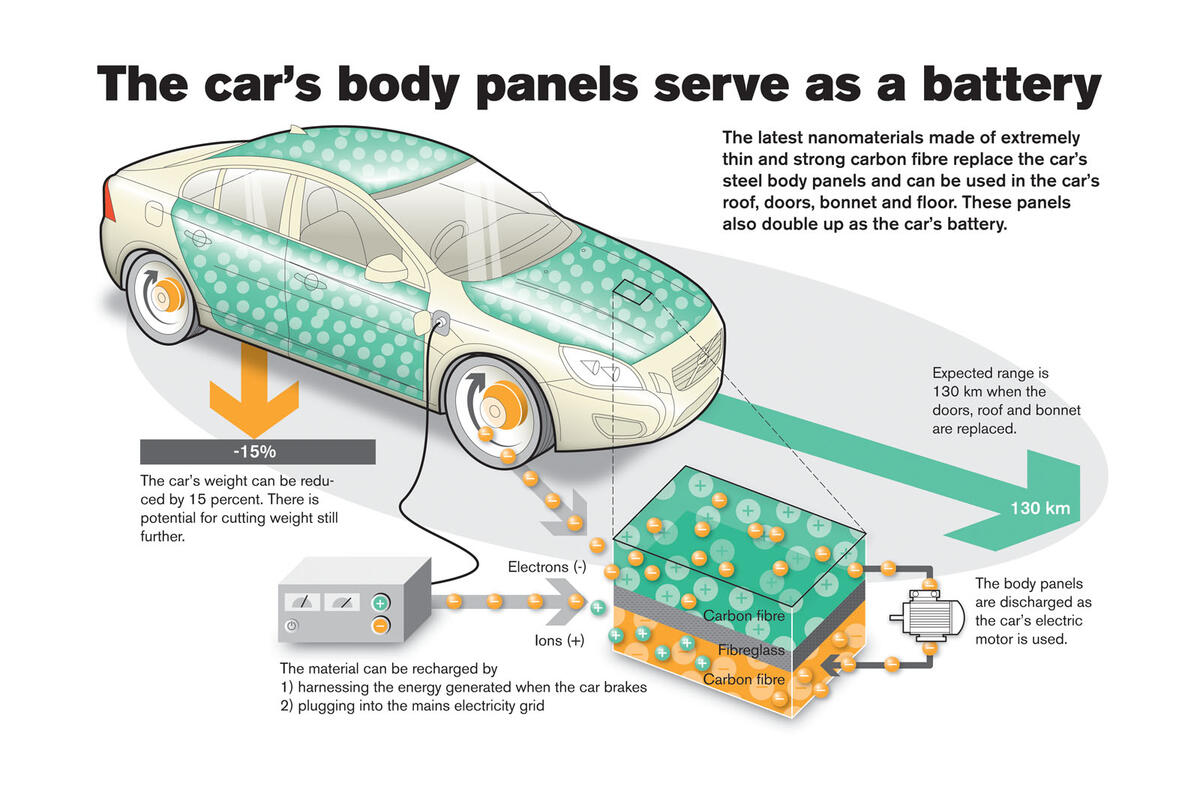Volvo has revealed that it is working on a feasibility study into creating car body panels that can also act as batteries.
The company is part of a consortium developing a material that can store and discharge electrical energy, but is strong, lightweight and pliant enough to be used for car parts.
See a diagram of how the new battery tech might work
The material is a plastic composed of carbonfibres and polymer resin. It can cut weight in vehicles by reducing the need for separate battery packs and by replacing the heavier steel currently used in car construction.
The technology has been patented by Imperial College London and the university has established a consortium of nine European companies – of which Volvo is the only car manufacturer – to continue its development.
Dr Emile Greenhalgh, the project co-ordinator who works in Imperial College London’s Department of Aeronautics, said: “We are really excited about the potential of this new technology.
“We think the car of the future could be drawing power from its roof, its bonnet or even the door... Even the sat-nav could be powered by its own casing.”
The material could potentially be used for the casings of other electrical items, such as mobile phones and computers. This would similarly allow them to become more lightweight as there would be no need for a separate battery.
The European Union has given 3.5 million euros (£2.97m) of financial support to the project.




Join the debate
Add your comment
Re: Volvo's radical battery body tech
Great idea if it can be done viably.
Can's see power companies being ovely pleased with self powering tv's/computers or anything else. Maybe its them who make up the other companies devleloping it?
Re: Volvo's radical battery body tech
Seems a bit Tomorrows World, but amazing if it comes off
Re: Volvo's radical battery body tech
This seems to me to be an excellent idea. The cost would need to be low though - what happens when you have crash and the panels need replacing? If they are 10 x the price of a normal panel I can only impagine what will happen to the insurance premiums